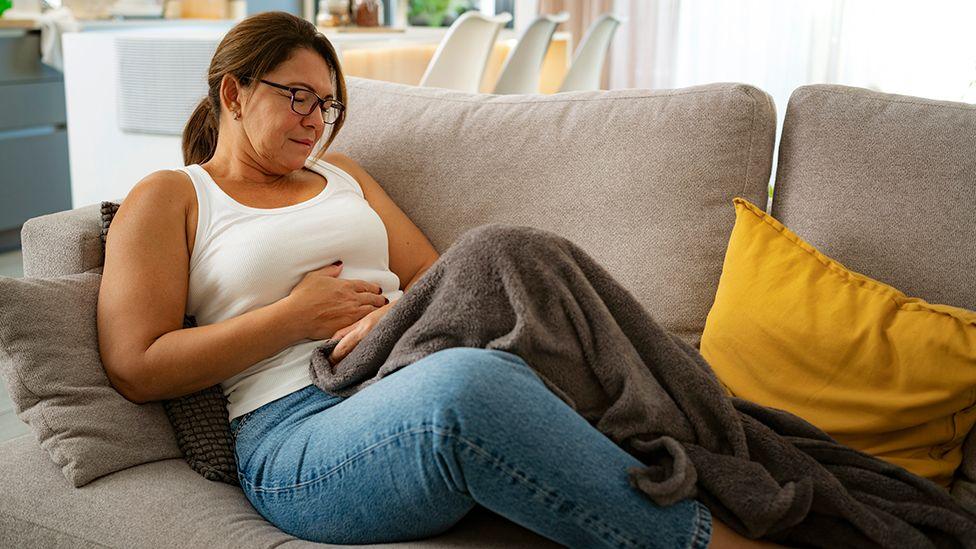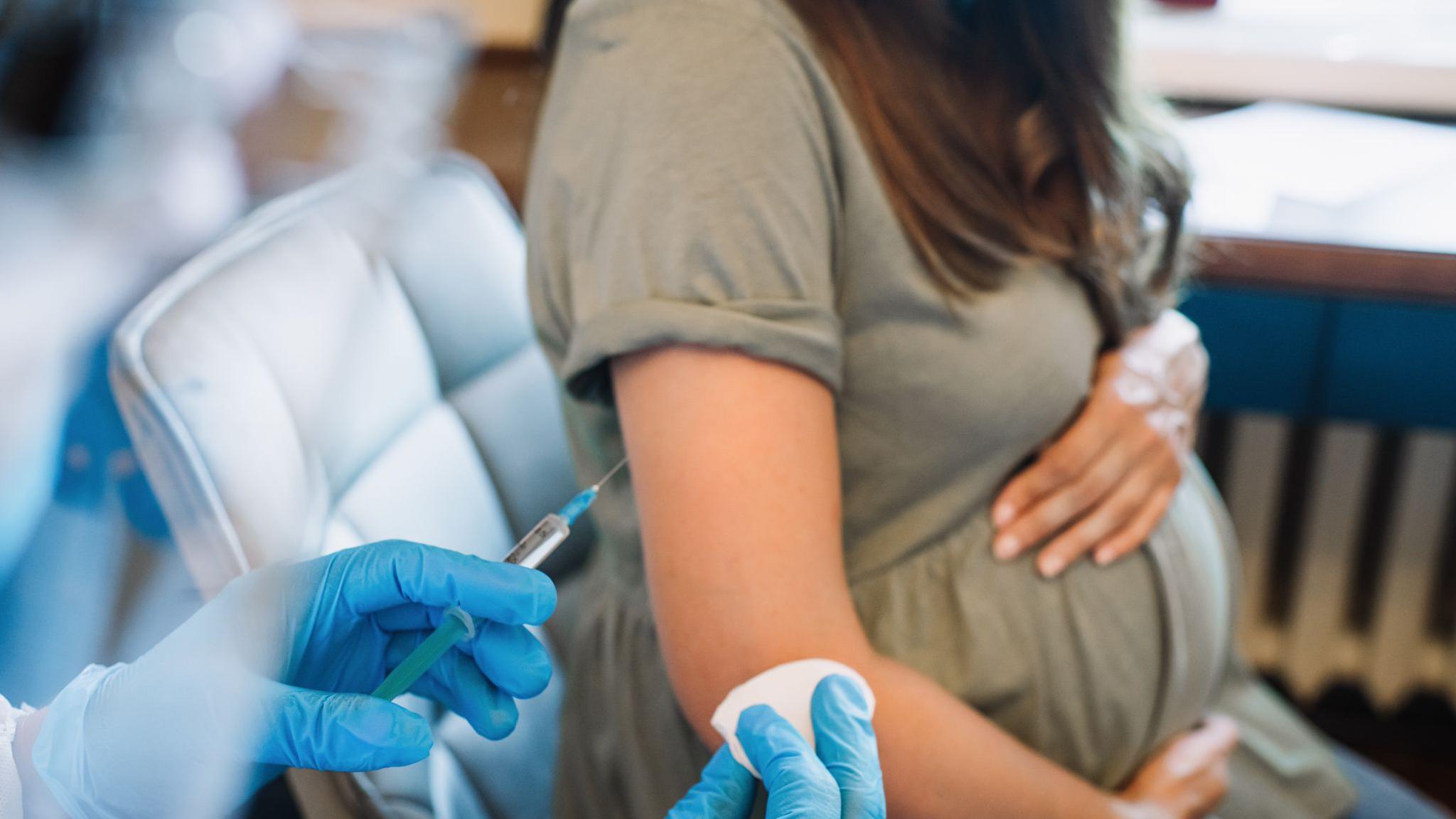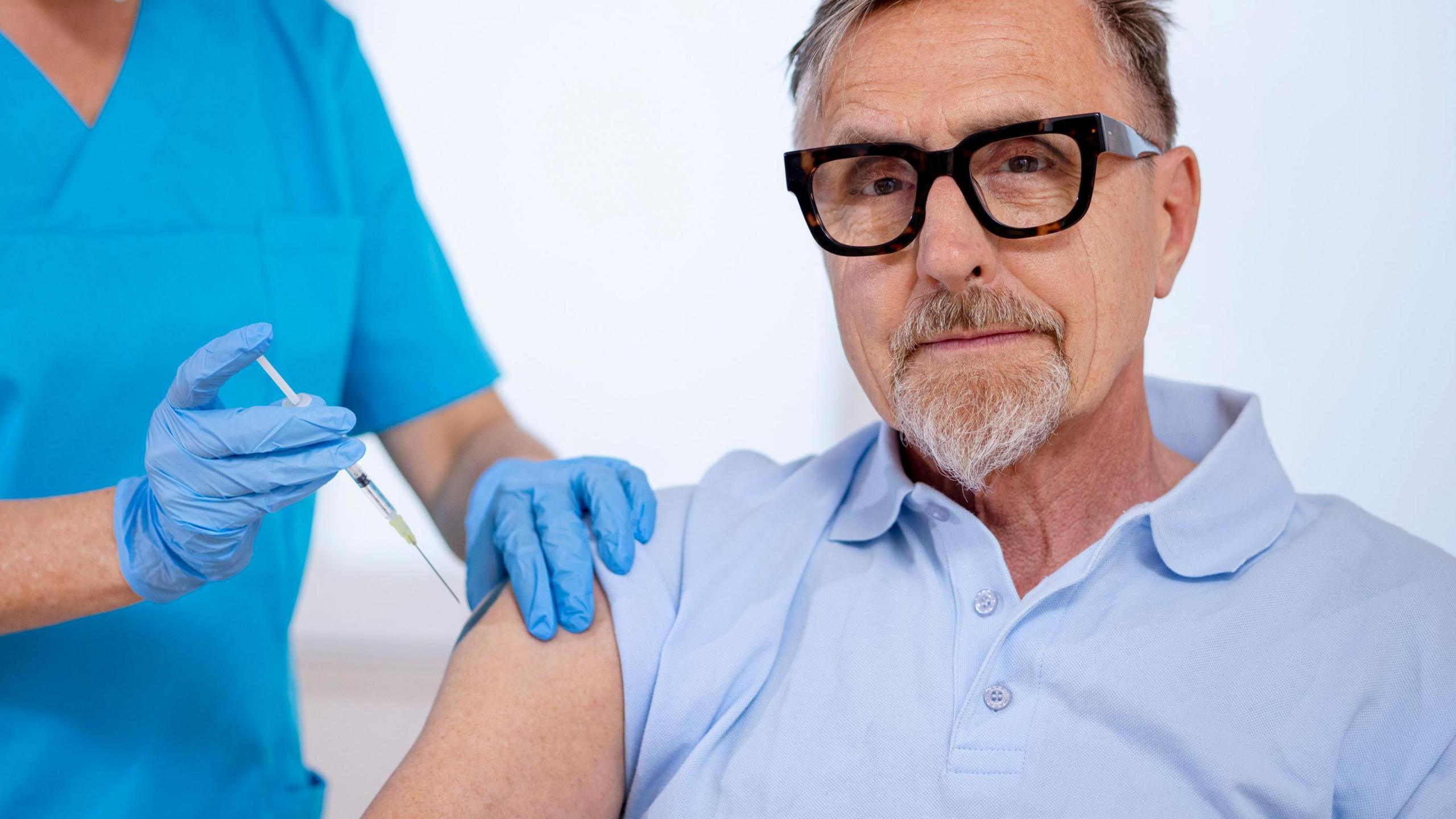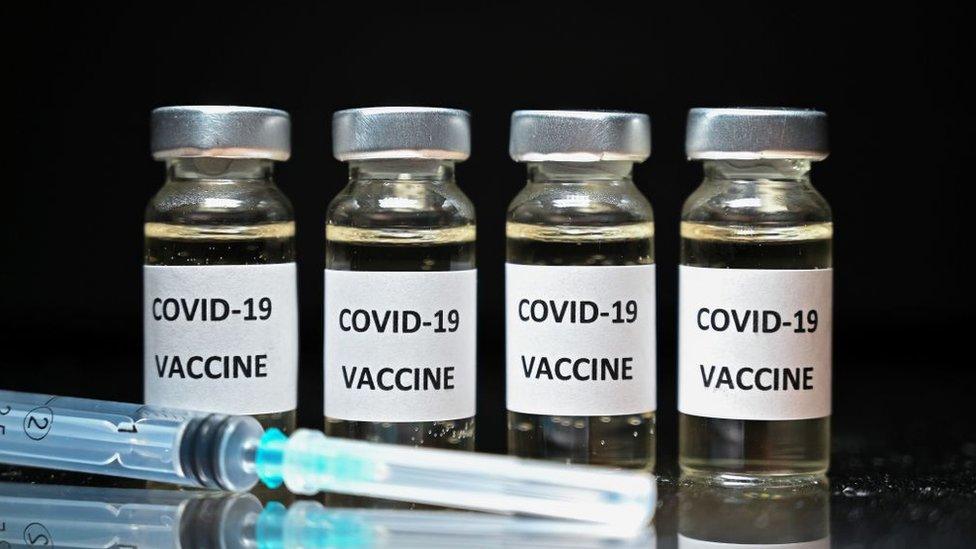Could vaccines end the winter vomiting bug?

- Published
A vaccine is to be trialled on thousands of people to find out if it could protect against norovirus - a stomach bug that causes vomiting and diarrhoea.
The easily spreadable winter virus can affect people of all ages and have huge consequences - often closing hospital wards, taking children out of school and keeping parents off work.
The vaccine will be tested on around 25,000 adults, mostly over-60s, in more than six countries around the world over the next two years.
If successful, the researchers say it would reduce the number of vulnerable adults in hospital during winter, as well as the financial burden on health systems like the NHS.
Vaccines against viruses like flu, Covid and RSV already exist and protect millions of people every year - but there has never been a vaccine licensed against norovirus, external.
The vaccine being trialled is made by Moderna and is an mRNA vaccine. Like the company's Covid jab, it delivers instructions to our immune systems on how to recognise an invasive virus and protect against it by producing antibodies.
What's tricky about norovirus is that it's difficult to pin down.
"There is a broad and shifting diversity of genotypes over time", says Dr Patrick Moore, a GP from Dorset, and chief investigator of the study.
So this vaccine contains three of the most common strains of the virus to get the best result possible.
There are still many unknowns - for example, how long will protection from it last, how effective will it be and how often will the vaccine need to be updated?
Answers to those questions should be answered during the trial, which is a collaboration between the UK Government, the National Institute for Health and Care Research (NIHR) and Moderna.
Twenty-seven NHS hospitals and centres in England, Scotland and Wales will take part in the trial, with half of those recruited given the vaccine, and their health compared to that of other volunteers.
Researchers will also be looking out for side-effects of the vaccine.
Several other drug companies are also developing and trialling norovirus vaccines, including HilleVax and Vaxart.

The impact of norovirus on the UK is considerable.
There is the human cost - every year, nearly four million people are infected by the sickness bug, 12,000 are admitted to hospital with it and there are 80 deaths.
The financial cost to the NHS runs to roughly £100 million annually.
Those most at risk are often older adults and the most vulnerable, including care home residents. But healthcare workers, childcare providers, flight attendants and cruise ship passengers and employees are often affected too.
Taking on lot of fluids is the only treatment for norovirus, to avoid becoming dehydrated.
Saul Faust, professor of paediatric immunology and infectious diseases at the University of Southampton, said norovirus "placed a huge burden on healthcare systems".
"Any infection increases frailty - and in the older population it's difficult to reverse that," he said.
Mobile units will be used in the trial so that researchers can go to care homes and give the vaccine to more people.
Eventually, if the vaccine shows at least 65% efficacy, and further trials take place, Prof Faust said it could be used to protect children too.
But that is likely to be several years off. In the meantime, researchers are focusing on collecting data which shows the vaccine reduces the risk of people becoming ill with norovirus. They will then send this information to the UK regulator to get approval for the jab.
Health and Social Care Secretary Wes Streeting said norovirus puts the NHS "under huge strain every winter".
"The UK is leading the way to develop a world-first vaccine for this vomiting bug," he said.
Professor Lucy Chappell, chief executive of the NIHR, said the vaccine could make a difference to many people's lives, "especially our most vulnerable citizens".
Related topics
- Published1 October 2024

- Published2 September 2024

- Published10 June 2024

- Published22 June 2022
